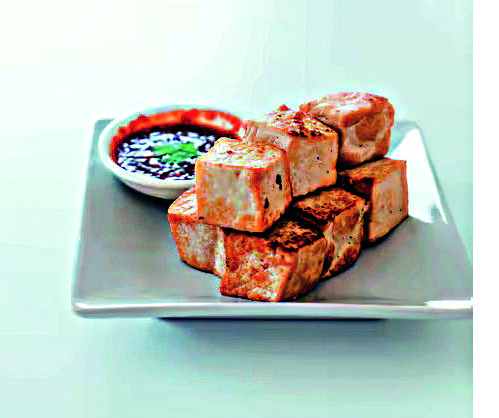
In a world where foodie culture reigns and gourmet options are just a delivery app away, recent news has many foodies side-eyeing their takeout orders. A leading food delivery app’s revelation that some restaurants were dishing out “analogue paneer”— a cheeky term for fake cheese—has sparked a fresh wave of concern about what is actually on our plates. As much as we love the ease of ordering our favourite dishes online, this incident is a reminder that not all cheese (or paneer) is created equal.
Dairy or Dare-y
When we talk about “fake cheese”, it’s not about dairy-free cheese alternatives crafted for vegans or those with lactose intolerance.
Those products are made with care and often pricier ingredients, like nuts or plant-based oils. Instead, this “analogue cheese” or “analogue paneer” is a cheese imitation made from cheap vegetable oils, milk powder, and flavour enhancers. It has just enough cheesy appearance and taste to pass as the real deal but lacks authentic ingredients and nutritional benefits.
In simple terms, fake cheese is a cost-cutting move. It’s cheaper to produce, doesn’t spoil as quickly, and can fool a fair number of customers who might not notice the subtle differences in taste or texture. It’s the culinary equivalent of passing off cubic zirconia as a diamond ring. Not illegal (usually), but not authentic either.
Cheese Choices
Fake cheese has been in the food world’s grey area for some time, but it’s gained traction with the rise of food delivery platforms. As restaurants grapple with rising ingredient costs, some have resorted to cutting corners—sometimes, this means opting for analogue cheese or paneer to keep costs down. According to food industry reports, the global market for analogue cheese has seen an uptick, especially among bulk cheese users in the fast-food and ready-meal industries.
Dairy Drama Uncovered
You might wonder how a restaurant can get away with using fake cheese. Unfortunately, there’s a gap in regulation. The line between what’s legally “cheese” and “analogue cheese” is blurry in some countries. Also, in a high-paced, profit-driven restaurant industry, it’s easy to sneak analogue cheese into dishes that customers wouldn’t think twice about—like a cheese-stuffed naan, paneer tikka, or a cheesy pizza topping.
The food delivery ecosystem, as convenient as it is, adds another layer of complexity. While food delivery apps make it easy to order food at the tap of a button, they’re not equipped to verify every ingredient that goes into each restaurant’s kitchen.
The Big Cheese
Consumers are increasingly paying attention to food quality, yet it’s no easy task to navigate a world where fake cheese and analogue ingredients slip into dishes. For those who prioritize quality, food authenticity is becoming a central concern. In a 2024 survey by the Food Safety and Standards Authority, 82% of respondents said they’d like more transparency from restaurants about ingredient sourcing and authenticity, especially in popular menu items like cheese or paneer.Food bloggers, influencers, and even chefs are calling for a “cheese code of conduct,” where restaurants clearly label if they’re using real cheese, cheese alternatives, or analogue cheese. After all, while some diners may be okay with a bit of veggie oil-based cheese on their nachos, others might feel duped if they expected the real thing.
Fraud Alert
Beyond the taste and texture issues, there’s a health aspect to consider. Authentic cheese, whether it’s paneer, mozzarella, or cheddar, contains valuable nutrients like protein and calcium. Analogue cheese, on the other hand, often substitutes these with high-fat, low-nutrition fillers like vegetable oils and starches, offering minimal nutritional benefits.
Moo-ving the cheese
The restaurant industry is waking up to the fact that customers want to know what’s on their plate. More transparency doesn’t just benefit the diner; it allows restaurants to build a reputation based on trust and integrity. Some industry experts suggest that food delivery platforms could add a “verified ingredients” label to help customers make informed decisions.
Taste Turmoil
The demand for authentic ingredients in the food industry is only growing. Customers want to enjoy their meals without worrying about the authenticity of what they’re eating. Zomato’s analogue paneer controversy may have exposed a small piece of a much larger puzzle—one that calls for industry-wide changes and more responsible ingredient sourcing.
Ultimately, the fight against fake cheese isn’t just about getting the right kind of cheese on your pizza or paneer in your curry. It’s about building a food culture based on trust, honesty, and, yes, a bit of foodie integrity. As long as consumers keep asking questions and demand real ingredients, restaurants will need to adapt. So next time you’re diving into a gooey, cheesy dish, take a second to wonder—what’s really in this cheese?
“When I see ‘paneer’ on the menu, I expect real paneer, not some cheap imitation. It’s disheartening to think we might be feeding our loved ones something that isn’t genuine.” — Suman Gupta, Homemaker
“We either buy paneer from home chefs or valid sources which have ingredients listed on the package, as analogue paneer isn’t good for health.” — Chef Deepa Chauhan, Master Chef Season 7 Top Contestant
